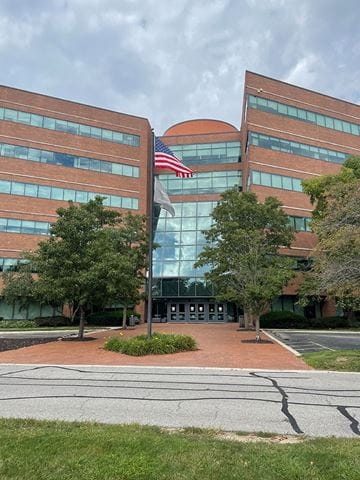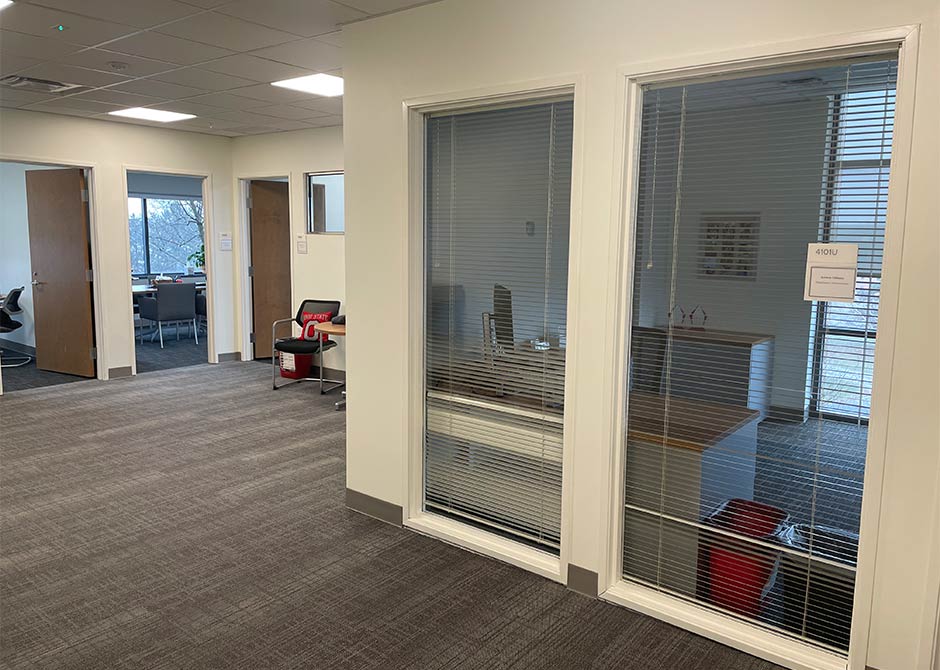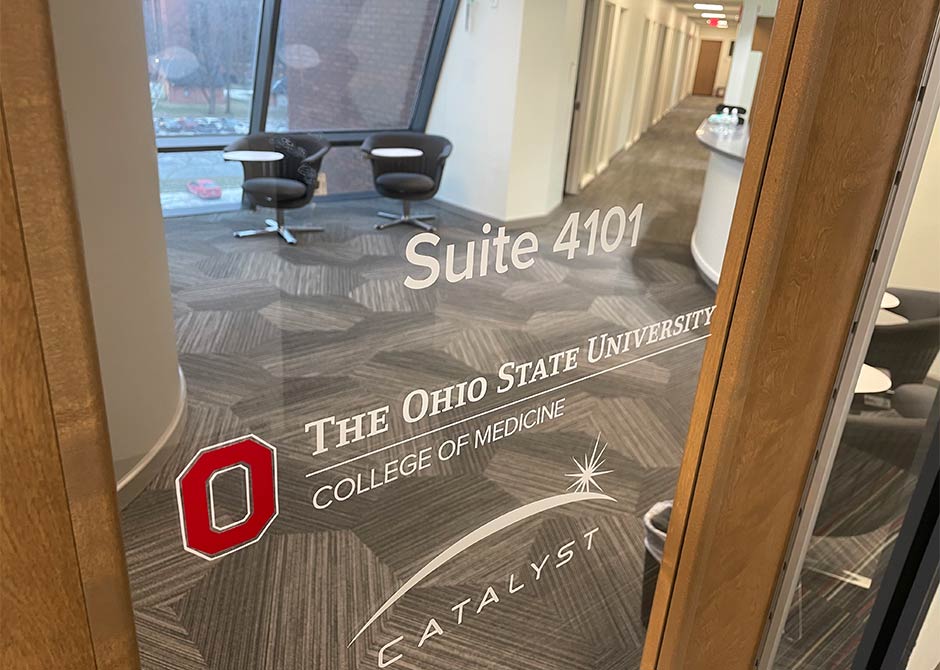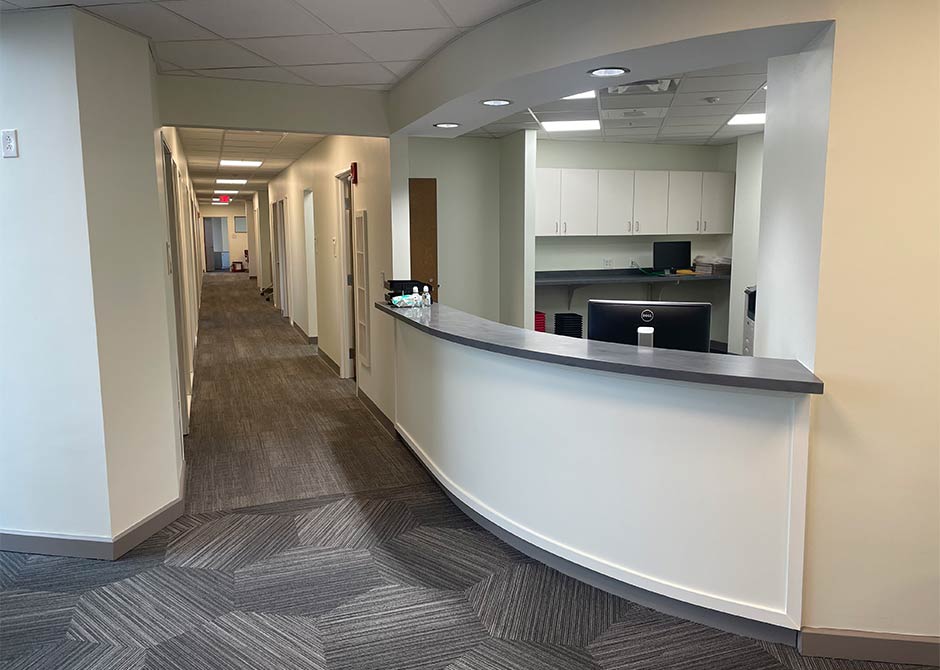
At start of exciting year of research, CATALYST moves into newly renovated space
By Tyler Griesenbrock
CATALYST scientific editor
Published January 18, 2024
 The new year comes with a new campus home for CATALYST, which officially welcomed faculty and staff to a freshly renovated suite at 700 Ackerman Road in December.
The new year comes with a new campus home for CATALYST, which officially welcomed faculty and staff to a freshly renovated suite at 700 Ackerman Road in December.
CATALYST – the Center for the Advancement of Team Science, Analytics, and Systems Thinking in Health Services and Implementation Science Research – previously made its home in the Institute for Behavioral Medicine Research at the southern end of campus.
As with many offices, CATALYST moved to a fully remote environment in March 2020, experiencing no loss in productivity or commitment; while individual projects may have been forced to adjust, the pace of discovery continued.
After a few technological hurdles were overcome, the multiple research teams that comprise CATALYST were able to transition projects, data collection, and team meetings in ways that enabled faculty and staff to remain connected and motivated throughout the pandemic. New innovations such as “Connecting in CATALYST” were launched to ensure team members had continuing opportunities to learn from each other and maintain their connections across the Center.
Along with the center’s ongoing research endeavors during the time away, plans were put in motion to eventually return to campus in a larger space to accommodate the center’s growth. A new home was ultimately secured at the opposite end of campus in the Ackerman Road complex, but CATALYST team members continued to work remotely until the new space was ready.
Renovations and final inspections on the fourth floor of 700 Ackerman Road were completed in late 2023, and in December, CATALYST faculty and staff were officially welcomed back to campus and offered the chance to view the new space.
The new suite offers considerable natural light as well as a combination of work areas including private offices, shared conference rooms, and cubicle office space for hoteling team members. In addition, enhanced audio-visual capabilities within conference rooms have been included to permit hybrid meetings as many new CATALYST projects include team members and collaborators who are not local.
Along with the new office suite comes many new projects, such as Implementing Scalable, PAtient-centered Team-based Care for Adults with Type 2 Diabetes and Health Disparities, or iPATH, funded by the National Institutes of Health. The iPATH project features experts from The Ohio State University, Stanford University, Harvard University, and Impactivo LLC conducting work to improve the quality of diabetes care delivered through federally qualified health centers. This project will refine and implement an approach to primary care practice transformation following a successful pilot.
Also among CATALYST’s newest collaborative projects is the DECIDE study, funded by the Patient-Centered Outcomes Research Institute, a comparative effectiveness trial of oral metformin versus injectable insulin for the treatment of gestational diabetes. The DECIDE trial will be conducted at 20 clinical sites across the U.S. and combines a randomized controlled trial of oral metformin versus injectable insulin during pregnancy with postpartum follow-up for mothers and their children through two years.
CATALYST’s main phone number remains 614-293-8973. For more information about CATALYST and our work, visit go.osu.edu/catalyst.




